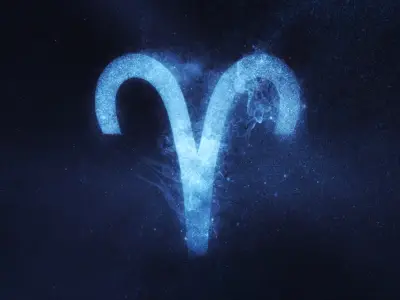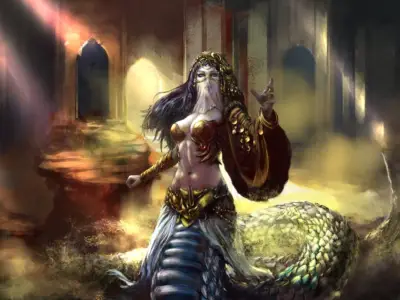You may well wonder at the continuing popularity of Greek mythology in the twenty-first century. The term ‘Greek Mythology’ conjures up images of impossibly beautiful gods and goddesses, fire and brimstone, roaring beasts and larger-than-life heroes.
On the surface, they may seem like impossible flights of fancy written by ancient philosophers. However, we need to keep in mind that these stories were written by people like Socrates, Homer and Aristotle, whose brilliant minds have made them immortal in the annals of human history.
The truth is, Greek myths are not only rooted in reality but have helped shape modern thinking in many important ways. Their mythical nature does not take away from the fact they contain important morals and teachings that are as relevant now as they were thousands of years ago.
Knowledge of Greek mythology has long-influenced society in subtle ways. It has shaped culture and tradition, directed political systems and encouraged problem-solving. It would be fair to say that the whole basic concept of modern thinking can be traced back to Greek stories and the valuable lessons they taught.
Influence of Greek Mythology on English Language and Literature
Many words used in the modern English language like idol, antique, dialogue, economy, spartan, architect, microscope, telephone, plus many more have been derived from the Greek language. The Greeks were the first to have a full-fledged alphabet system replete with vowels and consonants.
According to an estimate, more than 150,000 words in the English language are derived from ancient Greek. We can find allusions to Greek mythological figures in modern-day literature as well.
For example, C.S. Lewis’s ‘Till We Have Faces’ is a retelling of the Greek tale of Cupid (Eros in Greek) and Psyche. Similarly, Mary Shelley incorporated the theme of Prometheus in her book, ‘Frankenstein’. Hermione, the well-known character in Harry Potter, owes her name to Greek mythology. Hermione was the daughter of Helen of Troy and the King of Sparta.
If you notice, several global companies have been named after Greek mythical figures. For example:
- Amazon: Amazons were fierce female warriors who participated in the Trojan War - this is also where the Amazon River got its title, whose name the global online shopping platform has since borrowed.
- Eos: The goddess of dawn – is today known as a line of cameras produced by Canon.
- Pandora: The first human woman, endowed with unique gifts bestowed upon her by the gods – now a jewellery manufacturer.
- Olympus: The Greek mountain – now a brand of cameras.
- Oracle: Mortal psychic or seer - now known as the popular database software company.
There’s a reason companies like to brand their products and services after characters of Greek mythology. The public tends to subconsciously associate the features of the brand with those of the original mythical character. Nike, for example, was the goddess of victory, so it made sense for a sports brand to name themselves after her.
Popular Movies Based on Stories from Greek Mythology
Several successful and popular movies have been made based on stories from Greek mythology including the famous Percy Jackson series and others, including Clash of the Titans, Wrath of the Titans, Hercules, Helen of Troy, Ulysses, and many more.
Most of these movies went on to become hits - given the larger-than-life canvas for showcasing grand emotions including joy, sorrow, sacrifice, love, victory, jealousy, betrayal and loss. The stunning visuals were enhanced with a gripping original storyline derived from the original Greek stories.
Famous Mythological Tales and the Lessons They Teach Us Even Today
Achilles was all-powerful except in his heel. The story tells us that even a small or seemingly insignificant flaw can prove fatal and stop us from achieving our goals. Similarly, the myth of Hercules reveals the value of loyalty, strength of character and honour.
Hector, the son of Troy, is forced to fight Achilles and runs for his life, only to return later and fight the battle to the finish. The tale embodies the importance of overcoming your fears and facing challenges. The legend of Odysseus is about how you can triumph over obstacles and use perseverance to achieve your goals.
The story of Theseus and the Minotaur teaches us to stop, pause and reflect even when we’re under stress. After all, Theseus forgets to put up his white sails after his victory over the Minotaur and King Aegeus falls to his death before learning of his son’s return.
The Stories Highlight Higher Human Values
You can teach good behaviour and moral thinking to children through the tales of Greek mythology.
Dealing with jealousy and emotional blackmail? Read them the story of Hercules and the Goddess Hera. Struggling to handle sibling rivalry? Ask the children to read the story of Arachne and Athena.
Greek mythology is as fascinating now as it was thousands of years ago. However, they are much more than simply a collection of enchanting tales. Most of them can be described as psychological allegories that deal with the complex, subtle and recurring problems of human existence.
Greek mythology is a reflection of past civilizations and provides us with crucial insights into historical events, ancient cultures, relationships, human alliances and much more. Since they are creative and appealing to read, we imbibe those lessons subconsciously while enjoying a thoroughly captivating reading experience.
At the time of publishing, entering the code LEARNING at checkout will reduce the price of our
Greek Mythology Diploma Course to £29.






